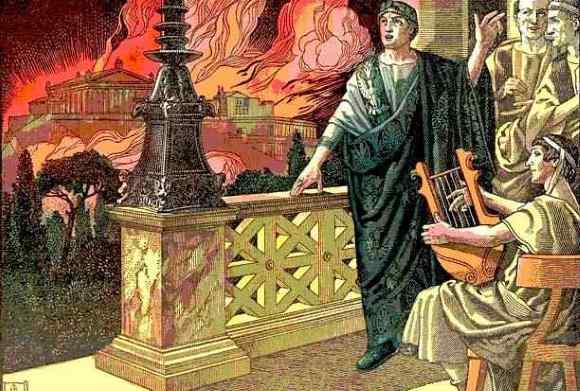Rome was burning Nero was fiddling
The phrase "fiddle while Rome burns" is often used to criticize someone who is engaged with little issues while ignoring more significant issues.
When Rome was burning quotes "When Rome was burning, Nero was fiddling"
Fiddle while Rome burns meaning : Be engaged with apparently minor issues while neglecting serious or terrible events taking place around them.

Nero fiddled while Rome burns Painting (pbs.org)
Nero was accused of being careless while his people suffered and of being ineffective in times of crisis. Did it, however, actually happen?
A great fire devastated Rome for six days in the summer of AD 64. According to Tacitus, a contemporary Roman historian, half of the city's population was displaced, and the fire destroyed 70% of the city's infrastructure.
As panic spread, rumours spread that Nero had ordered the fire to be set in order for him to reconstruct the city the way he wished.
The people of Rome were looking for scapegoats, thus the musical narrative was born.
There are numerous issues with this story's credibility, the most serious of which is that the fiddle had not yet been invented and would not be for another millennium.
Nero was a devoted music lover who excelled at the cithara, a stringed instrument similar to a mandolin, but he was not playing a fiddle.
Second, Nero was not in Rome when the fire erupted. He was at Antium, at his villa on the outskirts of town.
He rushed back after hearing the news to arrange emergency help, even opening his own gardens as a shelter for homeless Romans.
Nero accused Christians for the fire, which resulted in brutal punishment and executions, but he began to rebuild on the ruins afterward.
This convinced many that he was the perpetrator, and the tale gained traction. The cithara was later replaced by a fiddle over the decades.
Nero was not a popular dictator, but his behaviour during the fire may not have been as brutal and cruel as the fiddle myth portrays.
He was designated an enemy of the state four years later, and he committed suicide by stabbing himself in the throat with a dagger.